Dave Rubin of “The Rubin Report” shares a clip of civil rights activist Bob Woodson telling Dr. Phil the truth about slavery, black slave owners and why reparations wouldn’t help African Americans.
Slavery
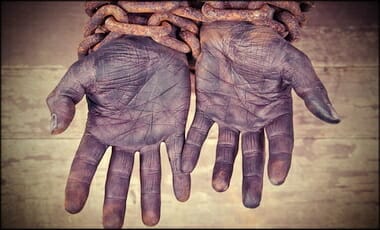
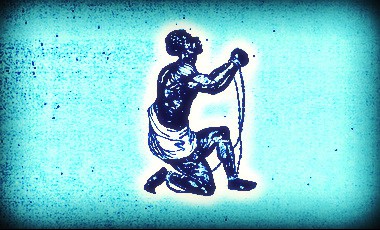
Thomas Sowell Short Clip of the Real History of Slavery
Facts about slavery never mentioned in school | Thomas Sowell (the longer, two hour and 20-minute chapter is HERE)

Yeonmi Park: My Terrifying Escape from North Korea (#Merica)
- I am most grateful for two things: that I was born in North Korea and that I escaped from North Korea. Both of these events shaped me, and I would not trade them for an ordinary and peaceful life. — Yeonmi Park
UPDATED VIDEO INTERVIEW: exactly one year from original posting
Yeonmi Park, North Korea defector and author on her defection from North Korea and how Columbia University has echoes of her past on ‘Kudlow.’
- Kudlow: “…somehow God was looking after you”
- Park: “Yes”
- Kudlow: “Really.”
- Park: “He did.”
- Kudlow: And, it’s a great story” [….] “It’s a blessing you made it through.”
Amen. (Concordia has a good posting on Yeonmi)
One commenter on the Fox Business’ YT channel says it all:
- I feel so embarrassed for our country when a foreign warrior comes here for freedom and still can’t escape the war.
Her accent is hard to follow, but you get a rhythm going as you listen to understand here | “GOD and North korea – Why the North Korean Christians Face the Most Extreme Persecution” (YouTube). She mentions the “real God” in the video speaking of the Judeo-Christian faith.
ORIGINAL POSTING
Born in North Korea, Yeonmi Park shares her harrowing journey to escape the hunger, thought control, and violence she experienced living under authoritarian regimes. Grateful to have found acceptance and justice in the United States, she cautions Americans to see the early warning signs—here in America—of the communist nightmares she fled in North Korea and China.

“The Woman King” Might Not Be What You Think | Larry Elder
Hollywood Lies vs History Truth: Movie “The Woman King” Might Not Be What You Think
Here’s the trailer for the movie “The Woman King” starring Viola Davis, supposedly “based on true powerful events.” Really?
The plot as described in IMDb:
- “A historical epic inspired by true events that took place in The Kingdom of Dahomey, one of the most powerful states of Africa in the 18th and 19th centuries.”
How historical?
Critic Robert Daniels, who mostly praised the film said: “You might wonder how (Director Gina Prince-Bythewood can shape a tale centering the Agojie warriors—an all-woman group of soldiers sworn to honor and sisterhood—hailing from the West African kingdom of Dahomey, when one considers their hand in perpetuating the transatlantic slave trade.”
Other reviews were more blunt about the historical inaccuracies, such as there was, in fact, a band of warrior women in Africa called the Dahomey. And they were fierce, feared and frequently bloodthirsty fighters. But they used that ferocity to kill and conquer other Africans for sale to slave traders. Indeed, the trans Atlantic and the Arab African slave could not have occurred without the complicity of African chiefs who sold conquered Africans do European an Arab slavers.
A review called The Woman King Historical Embarrassment puts it this way: “The movie has been set-up as a having a historical basis, telling the story of the real-life Kingdom of Dahomey in the 18th and 19th centuries…. In reality, Dahomey was a notorious slave kingdom, and not the Pan-African freedom fighters as the movie presents them. They enslaved and murdered hundreds of thousands from other tribes and sold them into the slave trade. Dahomey was renowned as the “Black Sparta,” and was a fiercely militaristic society bent on domination and conquest. Their soldiers struck fear into other tribes all along what is still known as the Slave Coast, as they captured tribespeople from enemy tribes and sold them as slaves.”
In the film, white slavers are the enemy when, in reality, they were business partners with the “women kings.”
The “Historical Embarrassment” review continues:
“Even worse for those who struggle with reality, the Amazons were formed from among the king’s “third class” wives. These were those considered insufficiently beautiful to share his bed and who had not borne children. Awkward!”
“History Vs. Hollywood” writes: “… in real life, the Dahomey are much more the villains than the heroes….The Kingdom of Dahomey was a bloodthirsty society bent on conquest. They conquered neighboring African states and took their citizens as slaves, selling many in the Atlantic slave trade in exchange for items like rifles, tobacco, and alcohol. Many of the slaves they sold ended up in America… There are accounts of Dahomey warriors conducting slave raids on villages where they cut the heads off of the elderly and rip the bottom jaw bones off others. During the raids, they’d burn the villages to the ground. Those who they let live, including the children, were taken captive, and sold as slaves.”
The truth is, as in my written testimony before a congressional committee considering reparations is as follows: Slavery, sadly, has been part of human history since the beginning. Muslim slave traders took whites out of the Mediterranean area and enslaved them in Northern Africa. European slavers took blacks out of Africa and shipped them to the New World. Europeans enslaved Europeans. Asians enslaved Asians. Africans enslaved Africans. Even native Americans enslaved other Native Americans…
“The Arab slave trade took more blacks out of Africa (for a time) and for a longer period of time then did the European slavers. In “Prisons & Slavery,” John Dewar Gleissner writes: “The Arabs’ treatment of black Africans can aptly be termed an African Holocaust. Arabs killed more Africans in transit, especially when crossing the Sahara Desert, than Europeans and Americans, and over more centuries, both before and after the years of the Atlantic slave trade. … African slaves transported by Arabs across the Sahara Desert died more often than slaves making the Middle Passage to the New World by ship.”
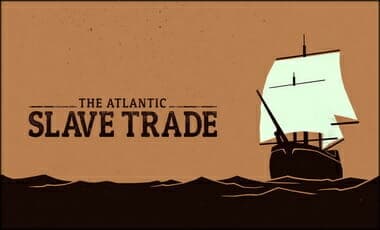
CNN’s Don Lemon Get Bitched Slapped By History
Don Lemon attempts to argue that the British royal family should pay reparations, and gets a quick history lesson. Don Lemon says she should come back for more discussion on this. Lol. That’s the last time she will be on.
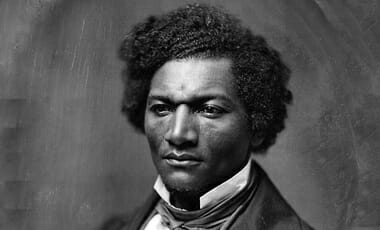
Frederick Douglass: From Slave to Statesman (Updated)
Frederick Douglass was born into slavery, but through his own heroic efforts became one of the most influential advocates for freedom in American history. His journey, a tale both agonizing and inspiring, should be known by everyone. Timothy Sandefur, author of “Frederick Douglass: Self-Made Man,” guides us through Douglass’ amazing life.
I spoke with the owners of the video that I grabbed this clip from. They were kind enough to allow this to stay up — HOWEVER — if you enjoyed this clip, please visit and consider subscribing to EncourageTV. The channel is built with positive, wholesome, and religious viewership in mind. (Which is better than the drivel we get elsewhere.)
(REALLY this is young Douglas vs. old Douglass, Kaepernick merely takes him out of a lifetime of thought)
Kaepernick quoted Frederick Douglas in “bashing” July 4th. FIRST, Ted Cruz does a bang-up job in responding to this here (DAILY WIRE). But the mistake I see here (#TWO) is that people evolve.
Let me explain.
I have heard many people over the years quote St. Augustine to support their understanding of a Church Father supporting old-earth creationism (OEC). But in fact, as Augustine matured in his faith and thought about the competing worldviews (remember, he was a Pagan before being Born Again) he became a solid young earth creationist (YEC). So the quote people choose pre-dates his ending up as a YEC’er. In other words, as he moved further away from his Pagan roots he came closer to God’s clear work. (See my post entitled “Taking Physicist Stephen Barr to Task Over St. Augustine“)
The same applies here, Douglas was newly freed, he fell into being tutored by someone who viewed the Constitution as a “slave document, but after spreading his wings further, reading the Constitution (and the Civil War) — he matured to believe the Constitution was an anti-slavery document.
The book pictured and I highly recommend is this: “Setting the Record Straight: American History in Black & White“. There is a DVD as well.
See as well my page on my site with many resource recommendations on various topics: “U.S. RACIAL HISTORY“
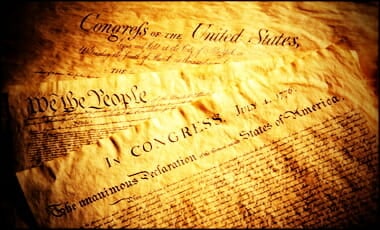
Are America’s Founding Documents “Racist”? (Biden Admin. VS. History)
There is just no way to really get across the years of reading on this topic in an audio or video form to respond to the bigotry and rewriting of history found in the Biden Administration. But I try with this somewhat long video. FIRST however, an article I suggest one read if a fan of Thomas Sowell is this one in the only political journal of note, THE CITY JOURNAL:
- THE NONCONFORMIST: Over a lifetime of scholarship and public engagement, economist Thomas Sowell has illuminated controversial topics such as race, poverty, and culture.
I likewise use video from WALLBUILDERS creations, as well as video from the following Thomas Sowell channels on YouTube:
This video likewise compliments my previous posts:
- 3/5ths Clause Explained (Abe Lincoln Bonus)
- Reparations Are Not the Answer (Thomas Sowell)
- Thomas Sowell DEBUNKS the Legacy of Slavery Argument
- America’s Original Sin (Michael Medved)
- Slavery’s Twist of Fate (Larry Elder and Roger D. McGrath)
- Getting Real About Reparations | Roger D. McGrath
- Percentages Of Slaves Brought To America (UPDATED)
- Thomas Sowell Goes Through The History of Slavery
- Some Historical Perspective on Slavery ~ Michael Medved
- Excerpts on Slavery (D’Souza, Williams, and Sowell) UPDATED
- U.S. RACIAL HISTORY

House Judiciary Hearing on Reparations (Larry Elder – 5-Parts)
Larry Elder brought some facts to a place that is short on them. Here are the portions that include both Larry Elder, Burgess Owens, and Tom McClintock.
OPENING STATEMENT
PART 2
PART 3
PART 4
CONCLUDING COMMENTS
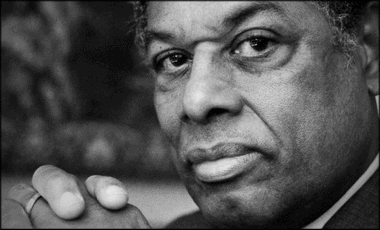
Thomas Sowell DEBUNKS the Legacy of Slavery Argument
In this video Thomas Sowell quashes the legacy of slavery argument that liberals use to explain disparities between blacks and whites in the United States. He also shares his thoughts on giving reparations for descendants of slaves.
(Check out the 22 books Thomas Sowell highly recommends)

Slavery’s Twist of Fate (Larry Elder and Roger D. McGrath)
Some amazing discussion about the beginnings of slavery, as well as more information on indentured servitude and the first legal slave owner:
“Slavery’s Ironic Twist of Fate,” By Roger D. McGrath
…Instrumental in establishing slavery in Virginia was an African slave, later known as Anthony Johnson, who was sold in Jamestown as an indentured servant in 1621 to a tobacco farmer with the surname of Bennet. By that time, tobacco had become the highly profitable cash crop of the colony and tobacco farms had begun filling up the hinterland of Jamestown. Johnson was one of the few on the Bennet farm who survived the Massacre of 1622, a surprise Indian attack on the farms surrounding Jamestown that left 347 colonists dead and mutilated. Johnson’s luck held, because the next year the Bennet farm had its first female indentured servant, an African called Mary, whom he married.
By the 1630s, Johnson was free of his indenture and, as was customary, received 50 acres of farmland from the colonial government. Soon he was selling crops of tobacco and importing indentured servants himself. For every servant he brought to Virginia he received 50 acres of land. By 1651, Johnson farmed 250 acres of land and had five indentured servants, four of them white and one black, a man named John Casor.
Claiming Johnson had kept him in servitude long beyond any term of indenture, Casor went to work for a neighboring farmer, Robert Parker. With Parker championing Casor’s cause the dispute went into the courts in 1654. Johnson argued that Casor had been sold in Africa as a slave and Johnson had bought him without Casor having signed a contract of indenture. Therefore, said Johnson, Casor was simply his property.
At first, the court rejected Johnson’s precedent-setting argument but, after an appeal in 1655 declared in Johnson’s favor, Casor was Johnson’s property and would remain so until Johnson sold him or freed him. There had been an indentured servant in Virginia sentenced to lifetime servitude as a punishment for a crime in 1641, but it was the Casor case that formally established the legal precedent for slavery. It is one of the ironies of history that a black African, Anthony Johnson, could be called the Father of American Slavery.
In 1661, the Virginia House of Burgesses, recognizing the Casor decision, enacted a statute that said any free person—white, black, or Indian—could own servants for life. This didn’t mean much to Indians who had practiced slavery for centuries anyway, but it did mean that the Indian tribes of the southeast would eventually own thousands of black slaves…..
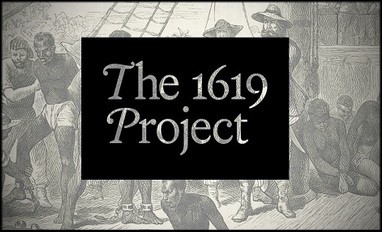
What’s Wrong With The 1619 Project? (PragerU)
In August of 2019, the New York Times published The 1619 Project. Its goal is to redefine the American experiment as rooted not in liberty but in slavery. In this video, Wilfred Reilly, Associate Professor of Political Science at Kentucky State University, responds to The 1619 Project’s major claims.
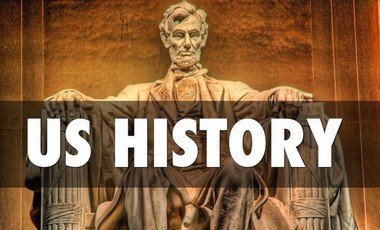
1619 Project Author Changes Foundational Claim
Armstrong and Getty go over the recent change via the New York Times’ Nikole Hannah-Jones. Here is a quote from the WORLD SOCIALIST WEBSITE’S article: “The New York Times and Nikole Hannah-Jones abandon key claims of the 1619 Project“:
…It is not entirely clear when the Times deleted its “true founding” claim, but an examination of old cached versions of the 1619 Project text indicates that it probably took place on December 18, 2019.
These deletions are not mere wording changes. The “true founding” claim was the core element of the Project’s assertion that all of American history is rooted in and defined by white racial hatred of blacks….
Another article worth a read is this one
- 1619 Project Author Nikole Hannah-Jones Now Says She Never Implied That Year Was America’s True Founding (REASON-ORG)